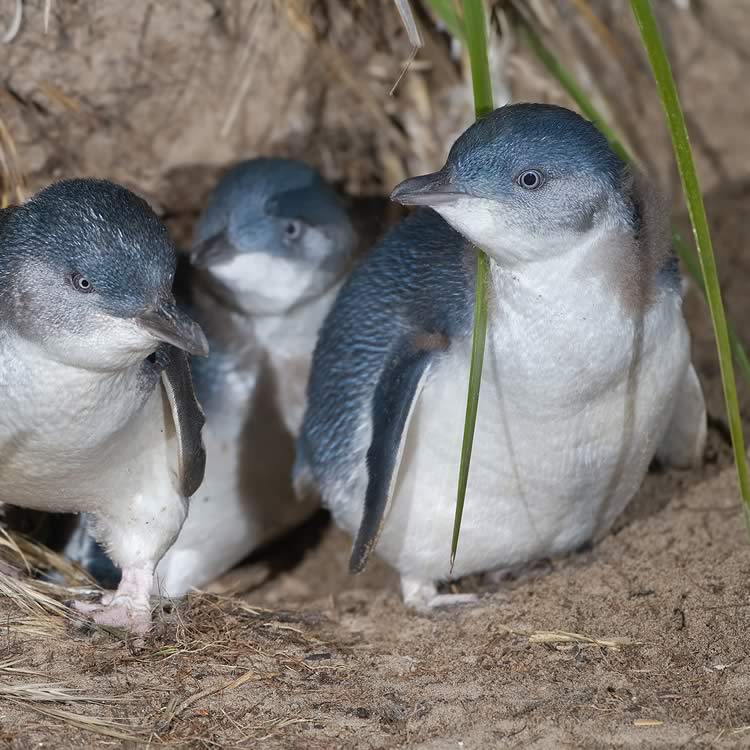Little penguin

Community type
Habitat type
Rocky reefs, kelp beds and inter-tidal zone
In the busy metropolitan Derwent Estuary little penguins (Eudyptula minor), also known as fairy penguins, can be found foraging offshore and nesting on the foreshore. However, over the years their numbers have declined rapidly. The Derwent penguin population is now highly vulnerable. Threats include vegetation removal, trampling of burrows, weed infestation around nests, attack and harassment by dogs and cats, drowning in gillnets, seasonal changes to natural food supplies, storm surges and coastal erosion causing damage to nest sites, and entanglement in marine debris.
The DEP and our partners (through the Penguin Advisory Group (PAG)) has worked to ensure that the estuary remains a safe and attractive place for little penguins since 2004. Work has involved the rehabilitation of penguin habitat, mapping nesting sites, minimising threats, developing management guidelines, and installing artificial nests. A monitoring program also collects data on nesting and breeding success, which local councils use to manage the penguin colonies, and the community is provided with educational information on sharing the Derwent with little penguins.
Monitoring of little penguins has shown that little penguin numbers naturally fluctuate depending on the suitability of breeding conditions. Once the Derwent Estuary supported over 1000 breeding pairs of little penguins however, however numbers are now more likely to be less than 200 penguins.
The PAG is currently supported by the University of Tasmania (IMAS), City of Hobart, Kingborough Council, Clarence City Council, the Tasmanian Parks and Wildlife Service, NRM South, Tasmanian Conservation Trust and the Marine Conservation Program (NRET).
Learn more a bout little penguins and get involved:
- 2020 update about Derwent Little Penguins (from page 140)
- Derwent Estuary Little Penguin Management Guidelines
- Little penguin kids poster
- Hear the sounds of a penguin colony!
- The Marine Conservation Program (NRET)
- Wildcare Friends of the Derwent and Channel Penguins
- Little Penguin Survey and Monitoring Toolkit - A NRET project designed to help Tasmanian community groups monitor penguin populations, assess the quality of penguin breeding habitat and identify land-based threats.
- Penguin Incident Report Protocol - What to do if you see injured penguins, dog attacks or marine oil spill.
